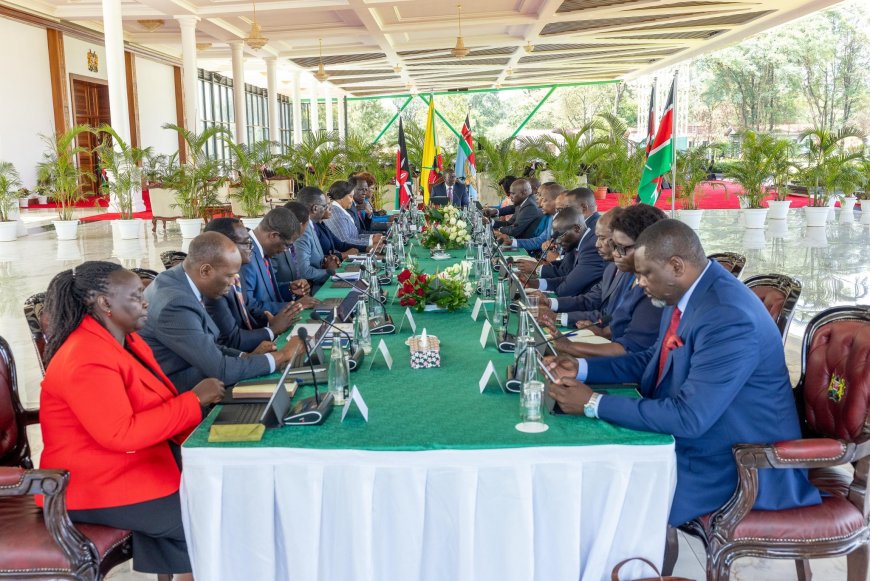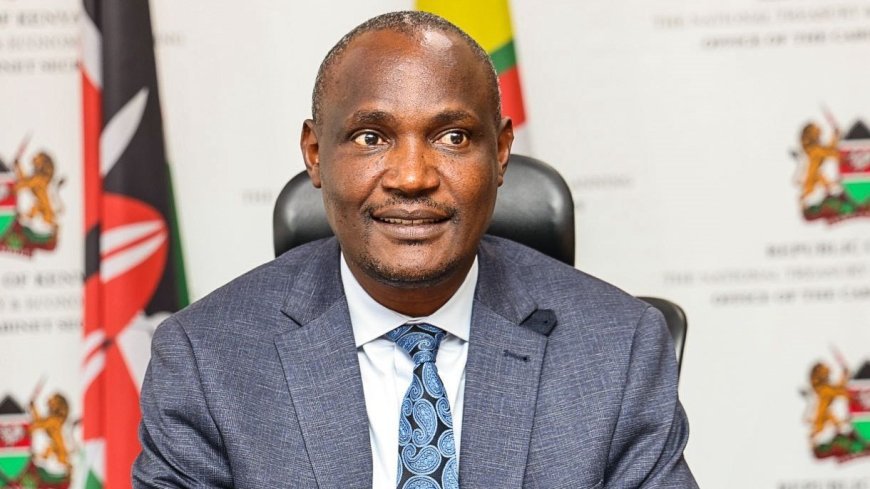Cabinet Approves Finance Bill 2025 Providing Win For Employees
Rather than introducing new taxes, the proposed law focuses on tightening the system with a revamped legal framework to reduce reliance on tax hikes.

On Tuesday, April 29, President William Ruto's Cabinet gave the green light to the Finance Bill 2025, ushering in a series of economic reforms across various sectors.
The bill zeroes in on boosting efficiency and plugging tax loopholes that have previously been used to drain public funds, especially through inflated tax refund claims.
Rather than introducing new taxes, the proposed law focuses on tightening the system with a revamped legal framework to reduce reliance on tax hikes.
Key changes include overhauling the tax refund process, closing legal gaps that delay revenue collection, and cutting down on tax-related disputes by amending key tax laws like the Income Tax Act, VAT Act, Excise Duty Act, and the Tax Procedures Act.

Treasury Cabinet Secretary, John Mbadi at his office on August 8, 2024. /NATIONAL TREASURY
"In furtherance of these objectives, Cabinet also approved the Finance Bill, 2025, which focuses primarily on closing loopholes and enhancing efficiency, including addressing loopholes related to tax expenditures that have historically been exploited to siphon funds from public coffers, such as through inflated tax refund claims," read the dispatch in part.
"Importantly, the Bill seeks to minimise tax-raising measures. Instead, it aims to enhance tax administration efficiency through a new legislative framework. Key provisions include streamlining tax refund processes, sealing legal gaps that delay revenue collection, and reducing tax disputes by amending the Income Tax Act, VAT Act, Excise Duty Act, and the Tax Procedures Act."
One standout proposal in the bill supports small businesses by letting them deduct the full cost of everyday tools and equipment in the year of purchase.
Retirees are also in for a major win—gratuity payments from both public and private pension schemes will now be completely tax-free.
The Cabinet said these reforms align with the Bottom-Up Economic Transformation Agenda (BETA) and reflect the government’s push for a stronger, fairer economy.
At the same meeting, the Cabinet also passed the Public Finance Management (Amendment) Bill, 2024. This new law would let counties set up Emergency Funds to improve their ability to respond quickly to crises, helping safeguard lives, livelihoods, and vital infrastructure.
"This decision follows the serious gaps exposed by the 2023 El Niño rains and stems from extensive consultations and a directive issued at the 24th Ordinary Session of the Intergovernmental Budget and Economic Council (IBEC) in August 2024," read part of the cabinet dispatch.
The Cabinet's decision to approve this year's Finance Bill comes nearly a year after Kenyans took to the streets to protest the contents of the Finance Bill 2024, with punitive tax measures threatening to completely damage the Kenyan economy.







